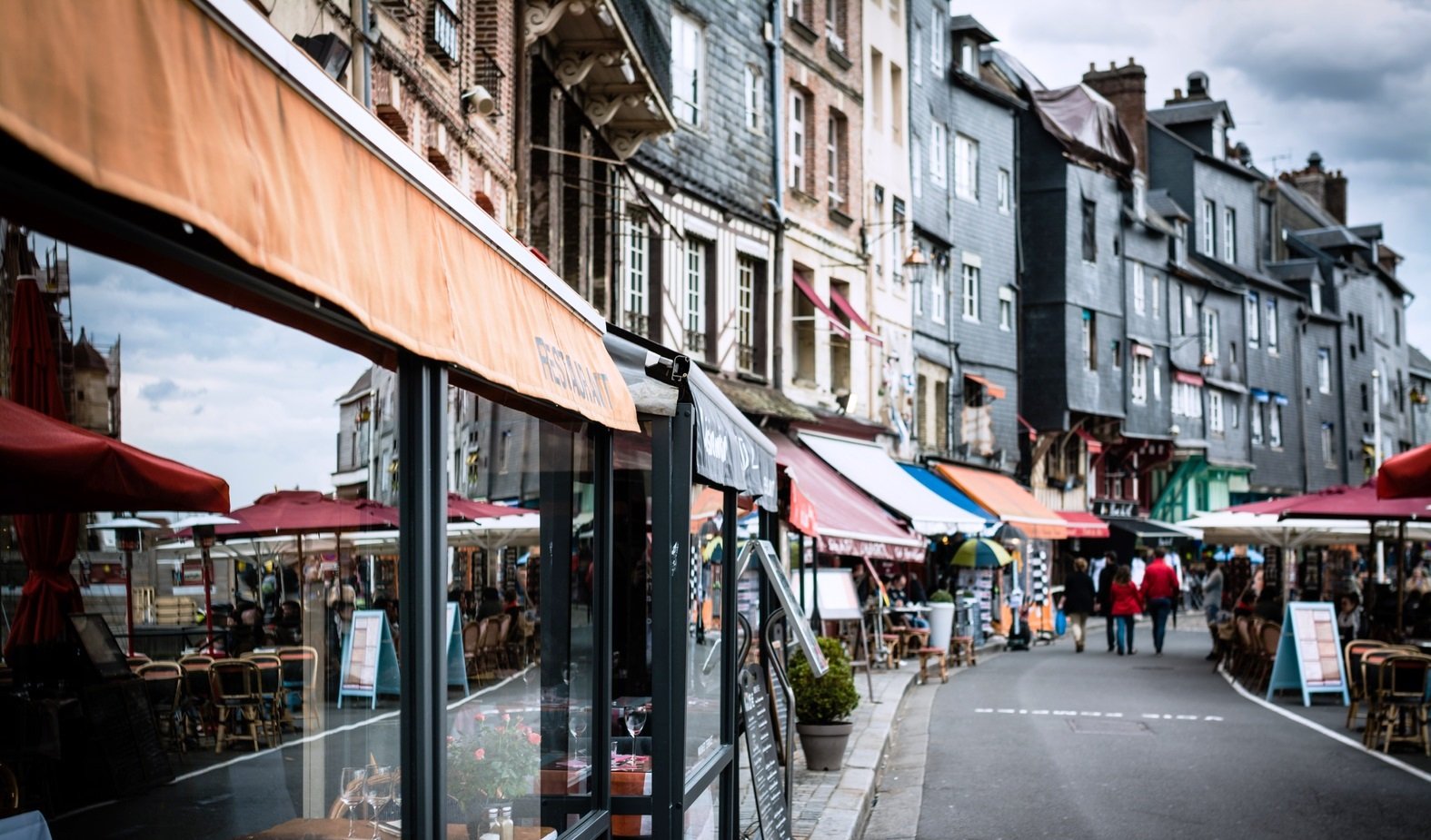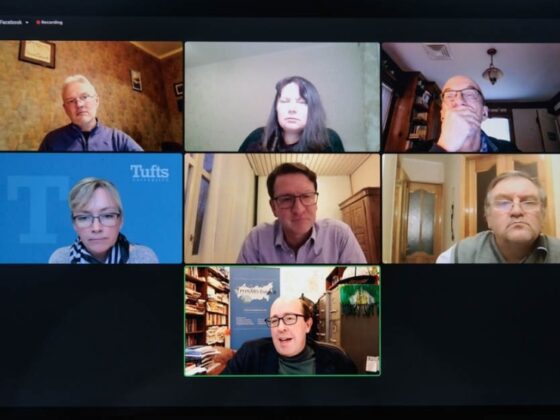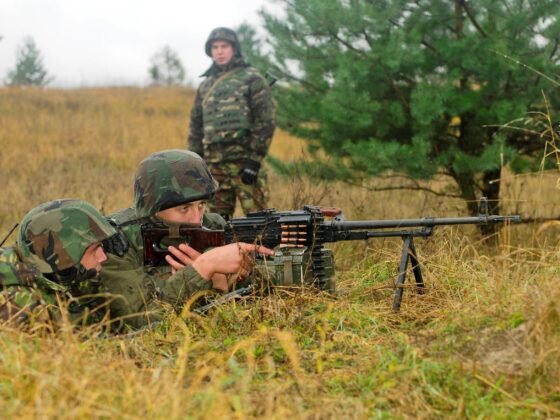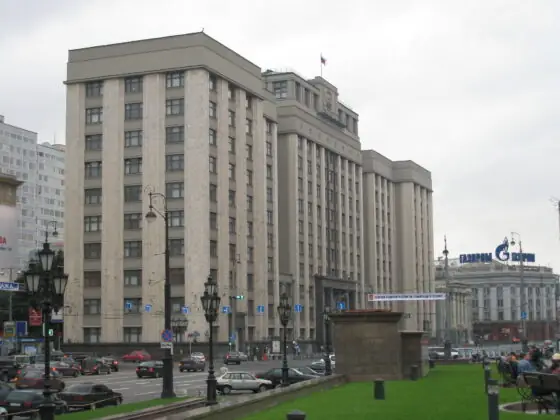(PONARS Eurasia Policy Memo) The Chechen and North Caucasus diaspora in Europe is estimated at 150,000 people, mainly situated in France, Germany, Austria, Poland, and Belgium. In recent years, the North Caucasus communities in Europe, particularly Chechens, have deplored the high levels of distrust and stereotyping within European host societies. According to diaspora members, a two-prong stereotype has developed, depicting North Caucasians in Europe as members of criminal syndicates and as connected to extremist circles. If research about the securitization of the Chechen community with regards to Islamic extremism is abundant, the same cannot be said about research surrounding the criminal stereotype associated with North Caucasians in Europe.
This phenomenon gained international attention resulting from several violent incidents involving Chechens in France, Germany, and Austria. Analytical coverage of those events ranged from decrying the rise of an organized and violent Chechen mafia in France and Germany to underlining their lack of social integration. Based on three years of fieldwork within the North Caucasus community in Europe, this memo investigates this perception of stigmatization among North Caucasians in Europe. It explains that North Caucasian customs and traditions are often interpreted as violent mobilization and anti-social behaviors rather than ethnic and social solidarity. Furthermore, it explains that insularity within the North Caucasus community and the misunderstanding of the eclectic nature of those communities have contributed to attitudes of suspicion among European authorities.
Are North Caucasians in Europe a High-Risk Community?
In June 2020, 150 Chechens gathered in Dijon, France, following the report of a sixteen-year-old Chechen being attacked by a group of North Africans. Chechens came from all over France and neighboring countries to join the movement to protect “their” youth from what they considered the behavior of criminal organizations. The mobilization gained great traction on social media as Chechens called on their community to unite and to defend one of their own. Chechens justified their mobilization as a form of ethnic and social solidarity. The situation culminated in social tensions, physical violence, and the arrest of several individuals, including Chechens, all around France.
In response to this incident, certain French and international media depicted Chechens as archetypal hardened criminals organized around a clan-based mafia, which has ramifications across Europe. For example, international and French media labeled Chechens in Dijon as being part of European “well-armed and masked Chechen gangs” engaging in a turf war with Arab gangs for drug control as well as engaging in “ethnic warfare with automatic weapons.” The well-known magazine Paris Match published a front-page story titled, “Alert to the Chechens: investigation of a discreet and disturbing community,” and other media talked about the rise of the Chechen mafia in Europe. This trope became more pervasive and spiraled out of control on social media and among political actors. The Mayor of Nice openly discussed Chechens being involved in turf wars between criminal groups for the control of drug distribution. Chechens were also described as being against French values, including secularism.
Although the Dijon event was covered by the international press, many other smaller incidents involving North Caucasians in Europe are also often interpreted by local media based on this very same trope. Those journalistic reports rarely seek to decipher the details and the nuances behind the incidents and rather link them with territorial disputes between criminal clans. In a confidential note, the Central Directorate of the Judicial Police in France claims that such Chechen demonstrations of force have become “increasingly frequent.” The most well-known of those incidents is a brawl involving Chechens against Germans and Poles in the German city of Rheinsberg in July 2020. In a subsequent interview, German officials suggested that German integration policies for Chechens have failed.
In this narrative, Chechens are described as members of criminal syndicates involved in violent settling of scores, drug trafficking, protection rackets, and violence against police officers. Such depiction is based on misinformation, often inspired by the fact that “Chechen” became a brand used by some criminal groups in Europe to increase their own capital and appear more ruthless. Although one cannot deny that some Chechens have been involved in criminal syndicates in many European countries, this phenomenon remains mostly marginal and limited to small groups. Claims supporting the existence of a pan-European Chechen mafia remain mostly unsubstantiated.
However, even with the lack of evidence, conclusions resulting from this narrative are often generalized to an entire community, resulting in stigma and collective guilt. Chechens and North Caucasians are pictured as struggling to integrate into European societies, leading to vigilante violence, crime, and extremist activities, rather than investigating the reasons behind collective mobilization. For example, in March 2021, the murder of Hamzat Labazanov in Rennes exemplified this trend where two Chechen brothers were targeted by local drug dealers. The local prosecutor hinted that the murder was the result of the settling of scores between rival gangs while the local community refuted this claim. According to them, Hamzat was killed because he wanted to chase drug dealers away from the lobby of his apartment building.
The Experiences of North Caucasians in Europe
A recent International Crisis Group field and desk research effort documents, in part, the “living experiences” of North Caucasians and other Russian-origin Muslims outside of Russia. Although these prejudices were not the focus of the project, field research in Europe brought them to light and led the research team to consider how this problem might be mitigated. A recent International Crisis Group field and desk research effort in which I was involved as a research consultant documents interviewees describing stereotypes that affect them directly, their community, and their life in Europe. They feel that a growing part of the European population perceives them as being outsiders or a “society of outcasts” unwilling to integrate. Others mention how Chechens are systematically associated with criminal and extremist activities.
Interviewees explain that cases of successful integration are rarely acknowledged and celebrated, but rare cases of violent events like at Dijon are spun out of control by some mainstream media. Furthermore, they perceive that politicians and host societies have pre-conceived and hard-to-break prejudices against them for their alleged criminal/extremist activities, leading them to request their immediate deportation to Russia. In almost every interview we conducted, interviewees challenge those stereotypes and talk about the many success stories within their community and how proud they are to be French, German, or Austrian citizens. After all, over 150,000 North Caucasians live in Europe, and cases like Dijon are certainly not a regular occurrence. Some interviewees go as far as mentioning that racism against Chechens seems to be more easily accepted within European societies than other forms of racism. It is difficult to assess this last claim as other migrant communities experience their own shares of discrimination, but nevertheless, this statement underlines a strong perceived sense of grievance.
Misunderstood Concepts: Socio-Cultural Codes and Legal Pluralism
Chechens and North Caucasians are not more stereotyped by the media and law enforcement than other minorities in France and Europe. However, it does appear that certain elements of their customs and socio-cultural codes are misunderstood by host societies and European media. For example, ethnic solidarity between Chechens, as observed in Dijon and Rheinsberg, can be framed as anti-social and criminal behavior rather than depicted as a lack of trust in existing legal mechanisms. In other words, although cases of Chechens and North Caucasians involving organized crime are happening in Europe, one is not witnessing the growth of a pan-European Chechen mafia but rather a more insular community choosing to rely on inter-ethnic trust to address issues pertaining to their members. This particularity can be the result of the level of their lack of trust in governmental institutions resulting from the Chechen wars and their lived experience under the Ramzan Kadyrov regime or resilient socio-cultural codes within their community. Notwithstanding the reason behind this lack of trust in public institutions, it certainly contributes to the feeling of ostracization experienced by the North Caucasus communities in Europe by feeding a vicious circle between their relative insularity and the misperceptions of their host societies.
To better understand this inter-ethnic solidarity, one can refer to the concept of legal pluralism. It explains that certain communities like Chechens can turn to alternative and parallel legal systems based on religion (shariah) or socio-cultural traditions complementing or replacing state law. From an early age, North Caucasians and Chechens are raised to follow a code or customary laws (adat) where the community is responsible for protecting the honor of its members and providing justice for them. It means that social solidarity and honor are protected by the entire community and not by the state or its institutions. Rather than turning to the legal system to repair wrongdoings, members of the North Caucasus will often choose to deal with the situation themselves. Scholars have shown how resilient this legal pluralism can be even in the second-generation immigrants in Europe. However, it does not mean that it must be enforced through violent means; reparations can be done through other non-violent mechanisms.
Such nuance is rarely explained when the media are covering stories like Dijon. Even though many Chechens offer testimonies explaining the importance of customary laws in the Dijon mobilization and the importance of protecting a 16-year-old teenager targeted by local criminals, some media deliberately choose to focus on a criminal-based narrative to depict the event making a parallel with wartime mobilization in Chechnya. When talking about socio-cultural codes, one must understand that they are not limited to the code of honor but includes additional values and norms such as the primacy of hospitality, respect for elders, courage, and discipline. When interviewed, Chechens and North Caucasians refer with pride to those socio-cultural codes and justify their actions in Dijon or elsewhere through them. They depict an image underlining the courage and the devotion of Chechens and the importance of ethnic solidarity over other forms of governance.
However, socio-cultural codes are not perceived the same way by secular agencies in European countries, rather resulting in misperceptions and mutual incomprehension. When referring to Chechens, police forces and security services often picture Chechens and North Caucasians as being driven by a sense of toxic masculinity, bravado, and violent-prone tendencies resulting from exposure to armed conflicts, repression in Russia, and archaic traditions.
In a way, the community’s own behavior can often indirectly reinforce existing stigmas. If social media contributed to the mobilization of the European Chechen community, it also propagated the perceived importance of those socio-cultural codes within the North Caucasus community and promoted the image of a community ruled by customary laws rather than state laws. The result is that Chechens and North Caucasians are often perceived as reclusive and high-risk communities involved in violent activities. Rather than depicting North Caucasian communities as having successfully integrated European life for more than two decades, it further anchors their reputation for being prone to violent activities and rejecting the European rule of law. Those prejudices have long-lasting negative impacts on migrant communities ranging from life opportunities to asylum processes. In recent years, the outflow of foreign fighters to Syria combined with the end of the Second Chechen War resulted in a drastic decrease in the acceptance rate for North Caucasian asylum claims in Europe.
Conclusion and Solutions
Countries that were known to be safe havens for North Caucasian migrants like Germany and France now have an over 90 percent rate of asylum refusal. A growing number of Russian migrants in Europe have been deported to Russia even though risks to their safety and life exist. In such contexts, the criminal stereotyping resulting from events like Dijon only made it more difficult for migrants to secure asylum in Europe. Even though North Caucasus communities have sought to organize themselves and protest this stigmatization, host societies have not acted to address this issue. Overall, addressing this issue is complex and multi-faceted and requires changes from all sides.
First, a better understanding of North Caucasus communities in Europe is needed. Moving away from a monolithic depiction of those communities and understanding the schisms within them will help to avoid blunt stereotyping in mainstream media. Even though some members might challenge the rule of law through legal pluralism, they do not represent their entire community in doing so. Community perceptions play an important role in the success of integration policies.
For that, host countries must do more in debunking those myths and supporting those communities. The Chechen community has sought to mobilize to raise attention to the issue, but it struggles to be heard at the European level. The host governments in Europe have the duty to challenge those stereotypes as often as possible, as well as provide legal tools for migrants to do so. Acknowledging existing biases and the lived experience of people as well as proactively engaging with them have been shown to constitute a better alternative than simply reacting to events like Dijon. Upstream and prevention programs can permit listening to and addressing grievances voiced by the North Caucasus community in Europe before incidents happen. The burden of challenging those stereotypes should not lie strictly on the victims’ shoulders.
Jean–François Ratelle is Assistant Professor in the Faculty of Social Sciences at the University of Ottawa.
PONARS Eurasia Policy Memo No. 738
Image credit











